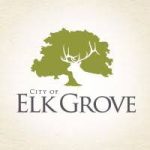Even for established companies such as Honey, a design and marketing studio founded in Sacramento in 2008, the global pandemic represented a unique challenge. Honey’s marketing and branding efforts focus on the food, beverage and agriculture industries. These industries were hit particularly hard by the shutdowns of 2020.
Fortunately, there is a program designed for companies such as Honey. Called Economic Gardening 2.0, this partnership between Berkeley Strategy Advisors and the National Center for Economic Gardening is geared toward supporting and building “second-stage” Sacramento businesses. A second-stage business should generate between $1 million and $50 million in revenue and employ between five and 99 employees.
“Economic Gardening provided Honey with some legs of resiliency,” says Honey founder and CEO, Mehgan Phillips.

And what did these legs of resiliency look like, exactly? Phillips describes the first six months of Economic Gardening as a “CEO coaching/business development boot camp.” The program provided Honey with expert consultations and hard data, allowing them to do an exhaustive audit of their hiring and branding strategies.
“To give you a specific example, we looked at what LinkedIn Sales Navigator could do for us,” she says. “How could we spread our marketing and design case studies in a way that would effectively get out of Sacramento networking. We want to have business come to Sacramento, but not be limited to harvesting it from Sacramento.”
These expanded hiring practices allowed Honey to focus on hiring equity. Hiring equity is also an important value for Berkeley Strategy Advisors and Economic Gardening. As such, supporting a female-led business such as Honey made for a perfect pairing.
“We’ve made a big commitment to recruiting as much diverse talent as possible,” says Phillips. “We want our doors open to every single person in their journey, and we’re making efforts to not recruit within the same traditional environments.”
Once a company finds the right employees, it’s important to retain them. A good means of doing this is through workforce training. More skilled employees are more invested employees, with greater room for growth. Economic Gardening was able to help Honey with that as well.
“We’re in the middle of what they’re calling ‘The Great Resignation,’” Phillips says. “Being able to invest in continued education, whether it’s the American Institute of Graphic Design, or going to the Unified Wine Symposium, ensures that we stay at the forefront of industry trends. So that was the second most important part of Economic Gardening for us.”
For businesses that may need a little financial help to make these kind of growth investments, Economic Gardening 2.0 can provide a matching grant up to $50,000. But even if the grant is not needed, Economic Gardening offers a valuable tool: objectivity.
“They provided us with a third-party audit of our strengths and weaknesses,” Phillips says. “It can be hard for a business owner to take the blinders off. You’re in the weeds.”
With Economic Gardening launching a new cohort, now is a great time for second-stage companies to get involved. For more information and how to apply, visit http://www.cityofsacramento.org/Economic-Development/Innovation/Economic-Gardening




























